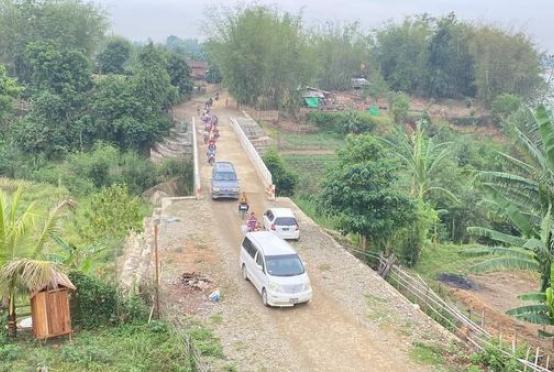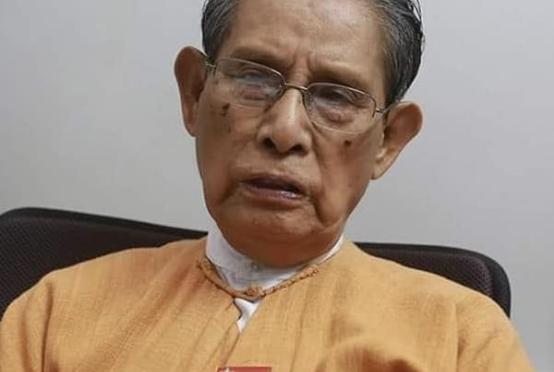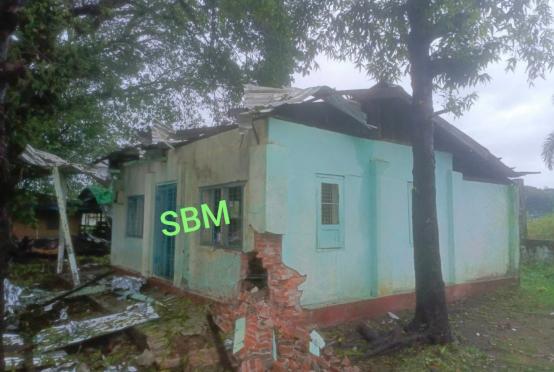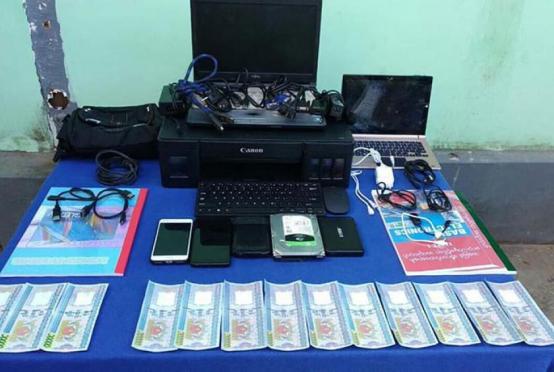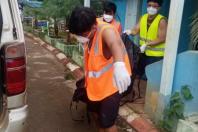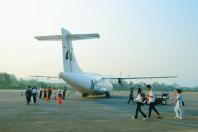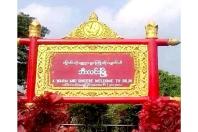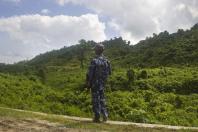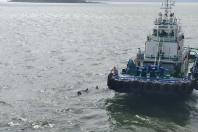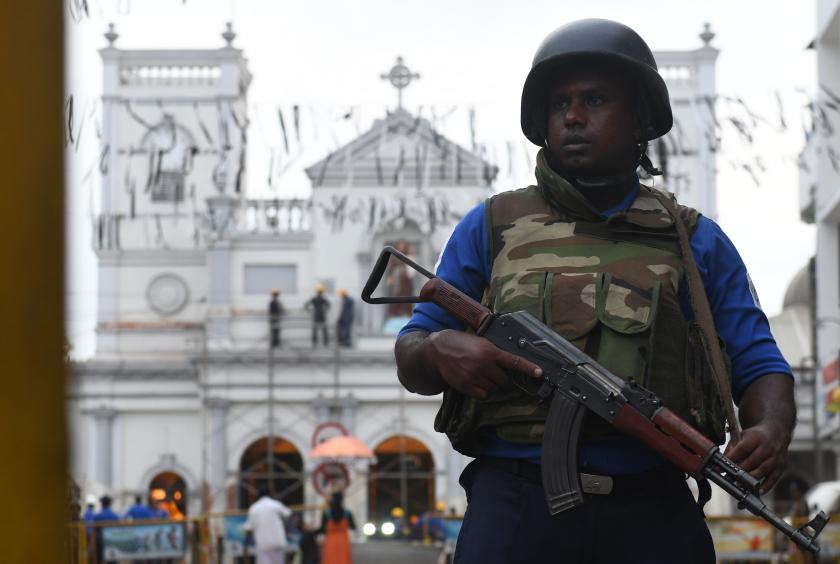
Colombo (The Island) - The return of terrorism to Sri Lanka on Easter Sunday after the lapse of nearly a decade is a day of infamy in the history of Sri Lanka because of its scale and spread. The whole nation is trying to understand the motivations that drove a group of radicalized individuals to engage in such a dastardly attack. Just as much as such a group was motivated enough to vent their anger for whatever reason, there always will be other groups with other motivations to resort to similar acts in the future. Therefore, the lesson for Sri Lanka or any other nation is eternal vigilance.
Failure of vigilance does not mean failure of intelligence. Vigilance means not only effective intelligence, but also taking effective action on the intelligence information gathered. For the political and security establishments to say that they were unaware of the goings on in the Muslim community is unacceptable. Equally unacceptable is the claim of the moderate Muslim community that it was unaware of the developments within their community, as it was with the Tamil community and the activities of "their boys". Therefore, collectively there was awareness all around that a process of Muslim radicalization was underway based on religious fundamentalism. What failed was how to act on the information that was common knowledge.
Even if they may not have been aware of the manner, scale and timing as to how the radicalization process was to manifest itself, the intelligence establishment was aware that the radicalization process would manifest itself in one form or the other, even if it did not know details as to how and when it was to manifest itself. The fact that no measures were adopted to meet any challenges arising from the information gathered is because of the over emphasis given by the government to reconciliation and related issues, at the expense of security related matters. Consequently, the security establishment failed to get the attention of the political establishment to heed their concerns; a fact that caused them to adopt a no-care attitude.
BALANCING CIVIL LIBERTIES
WITH VIGILENCE
A hard fact that cannot be denied is that security was down-played at the expense of reconciliation, human rights, and civil liberties. This attitude was starkly evident with the government co-sponsoring the UNHRC Resolution 30/1 where the focus was reconciliation along with all the commitments contained therein. During the last four plus years the security forces that gave their full measure of devotion to eradicate terrorism were collectively held accountable for alleged violations without any credible evidence by a government that had ridiculed them during the conflict. They see the actions of this government as the work of an ungrateful nation for the sacrifices they made. These measures have bruised and shattered their morale thereby compromising the security of the nation. This government must be held accountable for adopting measures that has brought the Sri Lankan State to its current level of vulnerability.
Even the need to ban the full body cover for reasons of security is being opposed by sections of the government itself on grounds that it targets only the Muslim community, and therefore the need to keep them "informed". On the other hand, it would have been a measure of solidarity if the Muslim leadership voluntarily appealed to their community to desist from wearing the full body cover for reasons of security. Even if the community responded positively to such an appeal, the fact is that those who wear the full body cover are members of radicalized groups that reject practices adopted by the rest of the community. Therefore, in this particular instance, security should override civil liberties and beliefs for the sanctity of the right to life of others. Hence, there is an imperative need to legislate banning the full body cover for reasons of security of the community as a whole.
At the end of the day there has to be a balance between security and civil liberties without which vigilance is compromised. For instance, freedom of speech and expression is a valued freedom. However, not all exercise such freedoms with responsibility. The result is hate speech. Although there are laws to prevent hate speech under provisions of ICCPR ACT No. 56 of 2007 of Sri Lanka, the question is whether there are laws to gather the evidence needed to prosecute anyone engaging in speech that violates the provisions in the Act cited above. If such laws are not in operation, the opportunity to deter hate speech is lost and without hate speech it would not be possible to radicalize young people to commit hate crimes, in the name of their warped intolerant beliefs.
INTELLIGENCE and VIGILANCE
One aspect of Intelligence is to know what is going on in a country. However, intelligence gathered has no meaning if there are no laws to act on the information gathered. Such laws could either prevent and contain unlawful activities or be of a nature that punishes anyone who commits an unlawful act. Since prevention of terrorists’ acts save lives, the strategy should be to prevent and deter terrorism rather than punishing those who resort to terrorist acts after the act is committed and hundreds die.
Those who resort to terrorism need to engage in the following activities:
Prospective suicide bombers and those who carry out terrorist acts have to be motivated by radicalizing them.
This requires radicalized leaders to engage in hate speech.
The collection and storing of material are needed to carry out terrorist acts.
Funding is needed to acquire such material.
Unrestricted travel both within and outside the country facilitates engaging in each or all of the four activities listed above.
Recognizing that each and all the activities listed above are needed prior to engaging in a terrorist act, the need of the hour is to revisit existing laws to ascertain whether they are effective enough to prosecute anyone engaging in any of the activities listed above instead of depending on laws that come into play only during an emergency. For instance, acts such as storing of offensive weapons and mutilating and defacing religious objects are offences under provisions of the Prevention of Terrorism Act. If so, the burning question the public is asking is: "Why did the authorities not take timely action to arrest and prosecute those responsible for such actions"? Had they done so and rule of law prevailed as it should, the government could have prevented the terrorists from executing their missions.
In this regard, since UN Security Council Resolution 1373 addresses most if not all the measures listed above, it is imperative that the government directs the law enforcement agencies to update existing laws to reflect the recommendations in the UN Resolution cited above.
Presented below is a section form the above Resolution calling on States to implement domestic laws in order to prevent and contain terrorism.
1. Decides that all States shall:
(a)Prevent and suppress the financing of terrorist acts;
(b)Criminalize the willful provision or collection, by any means, directly or indirectly, of funds by their nationals or in their territories with the intention that the funds should be used, or in the knowledge that they are to be used, in order to carryout terrorist acts;
(c)Freeze without delay funds and other financial assets or economic resources of persons who commit, or attempt to commit, terrorist acts or participate in or facilitate the commission of terrorist acts; of entities owned or controlled directly or indirectly by such persons; and of persons and entities acting on behalf of, or at the direction of such persons and entities, including funds derived or generated from property owned or controlled directly or indirectly by such persons and associated persons and entities;
(d)Prohibit their nationals or any persons and entities within their territories from making any funds, financial assets or economic resources or financial or other related services available, directly or indirectly, for the benefit of persons who commit or attempt to commit or facilitate or participate in the commission of terrorist acts, of entities owned or controlled, directly or indirectly, by such persons and of persons and entities acting on behalf of or at the direction of such persons;
2.Decides also that all States shall:
(a)Refrain from providing any form of support, active or passive, to entities or persons involved in terrorist acts, including by suppressing recruitment of members of terrorist groups and eliminating the supply of weapons to terrorists;
(b)Take the necessary steps to prevent the commission of terrorist acts, including by provision of early warning to other States by exchange of information;
(c)Deny safe haven to those who finance, plan, support, or commit terrorist acts, or provide safe havens;
(d)Prevent those who finance, plan, facilitate or commit terrorist acts from using their respective territories for those purposes against other States or their citizens;
(e)Ensure that any person who participates in the financing, planning, preparation or perpetration of terrorist acts or in supporting terrorist acts is brought to justice and ensure that, in addition to any other measures against them, such terrorist acts are established as serious criminal offences in domestic laws and regulations and that the punishment duly reflects the seriousness of such terrorist acts;
(f)Afford one another the greatest measure of assistance in connection with criminal investigations or criminal proceedings relating to the financing or support of terrorist acts, including assistance in obtaining evidence in their possession necessary for the proceedings;
(g)Prevent the movement of terrorists or terrorist groups by effective border controls and controls on issuance of identity papers and travel documents, and through measures for preventing counterfeiting, forgery or fraudulent use of identity papers and travel documents.
These recommendations have been in existence since 2001. Had successive governments upgraded domestic laws in keeping with Resolution 1373 many lives would have been saved. In particular, it would have been a serious impediment to those who funded and provided material support to those resorting to terrorism, without which the whole project would have failed. Such support continues to be received by the Tamil and Muslim communities. Therefore, it is a combination of effective intelligence backed up by effective laws that make a nation sufficiently vigilant for it to be safe and free of threats to its security.
CONCLUSIONS
Although strategies exist to improve the security situation in the country by preventing and containing terrorism, the mood in the country is that this government is not going to adopt the needed measures to make the country safe for its citizens as it had been over the last decade. Whether the reason for such a mood is because of the apathy of the government or because the government is allowing the security situation to deteriorate intentionally for reasons of internal harmony, means the government has lost its right to govern because security that protects the right to life has to prevail over all other considerations. There is also speculation that security is being deliberately sacrificed as part of a greater geostrategic plan to justify intervention in the event security spirals out of the control of the government. The fact that the government has not prosecuted anyone guilty of storing weapons, supports such apprehensions.
There is no denying that the government as a policy has relaxed measures relating to the rule of law. This has resulted in lifting restrictions on travel. Another activity relates to uncontrolled flow of funding to entities, without question as to sources of origin and purpose. Both measures are exploited by terrorists. While a free and open society is what all aspire to, it must be acknowledged that such benefits come at a price, and that price is that all have to trim some of our liberties because a few abuse the freedoms under which they live. Therefore, there has to be a judicious balance between security and civil liberties and if one has to make a choice, security should override civil liberties. The exercise of such balance requires societies to adopt measures that promote vigilance, without which there cannot be the freedoms we cherish.
http://www.island.lk/index.php?page_cat=article-details&page=article-det...

